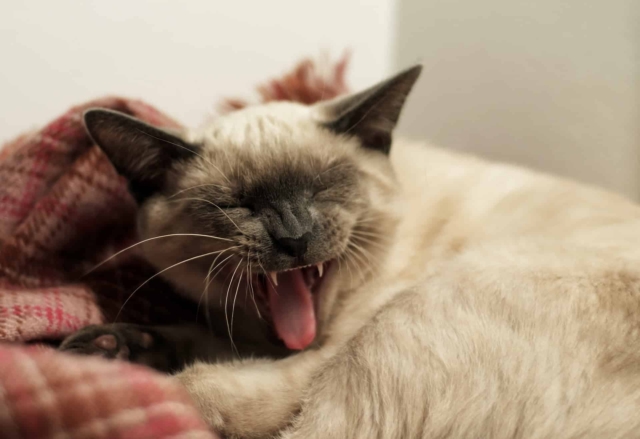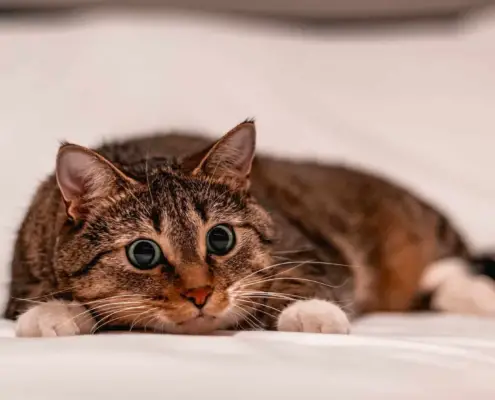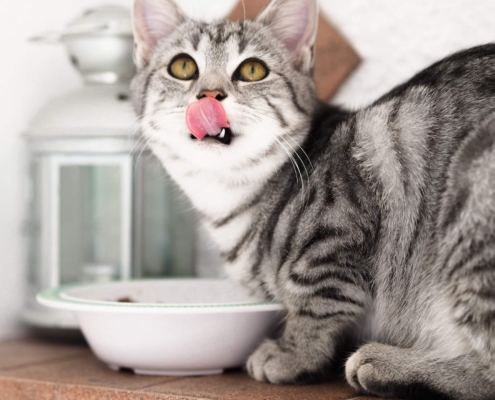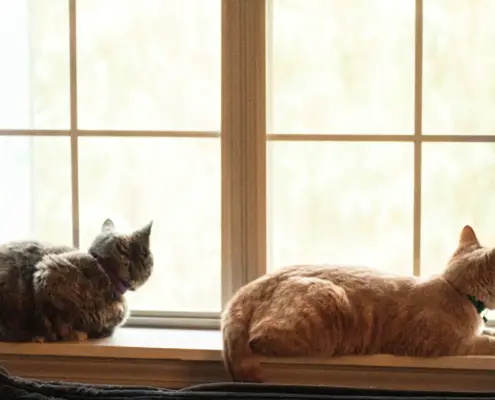
Cat sneezing is a common occurrence that can be caused by various factors. Sneezing is the body’s natural response to expel irritants or foreign particles from the nasal passages. While occasional sneezing is normal for cats, persistent or excessive sneezing may indicate an underlying health issue. It is essential for cat owners to understand the causes, symptoms, and treatment options for cat sneezing to ensure the well-being of their furry companions.
Common causes of cat sneezing
Allergies and cat sneezing
Just like humans, cats can also be allergic to certain substances present in their environment. Allergens such as pollen, dust mites, mold spores, or certain chemicals can trigger sneezing in sensitive cats. Allergic reactions may not only lead to sneezing but can also cause other symptoms like watery eyes, itching, and skin irritations. Identifying and avoiding the allergen is crucial in managing cat sneezing caused by allergies. In some cases, antihistamines or corticosteroids prescribed by a veterinarian may be necessary to alleviate the symptoms.
Respiratory infections and cat sneezing
Respiratory infections, including feline viral rhinotracheitis and feline calicivirus, are common causes of sneezing in cats. These infections are highly contagious and can spread rapidly among cats, particularly in multi-cat households or shelters. Along with sneezing, cats may also exhibit symptoms like nasal discharge, coughing, fever, and lethargy. Veterinary care is essential for diagnosing and treating respiratory infections, as they may require specific medications, supportive care, and isolation to prevent further spread.
Environmental factors and cat sneezing
Certain environmental factors can trigger sneezing in cats. Exposure to strong odors, such as cigarette smoke, cleaning agents, or perfumes, can irritate the nasal passages and induce sneezing. Additionally, dusty or poorly ventilated environments can also contribute to sneezing in cats. Ensuring proper ventilation, minimizing exposure to irritants, and maintaining a clean living space can help reduce the frequency of sneezing caused by environmental factors.
Other possible causes of cat sneezing
In addition to allergies, respiratory infections, and environmental factors, there are other potential causes of cat sneezing. These include:
- Foreign objects: Cats may occasionally inhale or sniff foreign objects such as grass blades, dust particles, or small toys, leading to sneezing.
- Nasal polyps: Nasal polyps are noncancerous growths in the nasal passages that can obstruct airflow and cause sneezing.
- Dental issues: Dental problems like tooth abscesses or gum disease can cause secondary infections that may manifest as sneezing.
- Tumors: Though rare, nasal or sinus tumors can cause persistent sneezing in cats.
If a cat experiences recurring or severe sneezing, it is important to consult a veterinarian for a thorough examination and accurate diagnosis.
Symptoms of cat sneezing
Apart from the obvious symptom of sneezing, cat owners should be aware of other signs that may accompany sneezing and indicate an underlying issue. These symptoms include:
- Nasal discharge: Sneezing accompanied by clear, watery, or colored discharge from the nose may indicate an infection or inflammation.
- Coughing: Cats with respiratory infections may develop a cough along with sneezing.
- Fever: Elevated body temperature can be a sign of infection, requiring prompt veterinary attention.
- Lethargy: Excessive sneezing can make cats feel tired and lethargic.
- Loss of appetite: Cats with underlying health issues may lose their appetite.
If any of these symptoms persist or worsen, it is crucial to seek veterinary care to ensure appropriate treatment and prevent further complications.
When to seek veterinary care for cat sneezing
While occasional sneezing is normal for cats, certain situations warrant immediate veterinary attention. These include:
- Persistent or severe sneezing: If a cat is sneezing excessively or continuously for more than a few days, it is important to consult a veterinarian.
- Accompanying symptoms: If sneezing is accompanied by nasal discharge, coughing, fever, or any other concerning symptoms, veterinary care is necessary.
- Change in behavior or appetite: If a cat’s behavior or appetite changes along with sneezing, it could be indicative of an underlying health issue.
- Multiple cats affected: If multiple cats in a household or a shelter exhibit sneezing or other respiratory symptoms, it may indicate a contagious infection requiring veterinary intervention.
Remember, early detection and timely treatment can prevent complications and ensure a speedy recovery for your feline friend.
Treating cat sneezing at home
In some cases, mild sneezing in cats can be managed at home with simple measures. These include:
- Environmental changes: Ensure a clean and well-ventilated living space, free from potential irritants like cigarette smoke or strong odors.
- Dust control: Regularly clean and vacuum the house to minimize dust accumulation, which can trigger sneezing in cats.
- Humidification: Using a humidifier in the cat’s living area can help moisten the air, reducing nasal irritation.
- Stress reduction: Cats experiencing stress or anxiety may be more prone to sneezing. Providing a calm and secure environment can alleviate sneezing caused by stress.
If home remedies do not alleviate the sneezing or if the symptoms worsen, it is crucial to seek veterinary care for a comprehensive evaluation and appropriate treatment.
Veterinary treatment options for cat sneezing
When it comes to treating cat sneezing, a veterinarian will first determine the underlying cause through a thorough physical examination, medical history review, and diagnostic tests if necessary. Treatment options may include:
- Antibiotics: If a bacterial infection is detected, antibiotics will be prescribed to eliminate the infection and alleviate sneezing.
- Antiviral medications: Viral infections like feline viral rhinotracheitis may require antiviral medications to manage symptoms and speed up recovery.
- Antihistamines: In cases of allergic reactions, antihistamines may be prescribed to reduce sneezing and other allergy-related symptoms.
- Steroids: Corticosteroids can help reduce inflammation and alleviate sneezing caused by allergies or certain respiratory conditions.
- Surgical intervention: In cases where nasal polyps or tumors are causing the sneezing, surgical removal may be necessary.
The specific treatment approach will depend on the underlying cause and the severity of the condition. It is important to follow the veterinarian’s instructions and complete the full course of prescribed medications.
Preventing cat sneezing
While it may not be possible to prevent all instances of cat sneezing, certain measures can help reduce the risk and frequency of sneezing episodes. These include:
- Regular vaccinations: Ensuring that cats are up to date on their vaccinations can help prevent respiratory infections that may cause sneezing.
- Maintaining a clean living environment: Regularly cleaning and disinfecting the cat’s living area can minimize the presence of irritants and reduce the risk of respiratory issues.
- Minimizing exposure to allergens: If a cat has known allergies, avoiding contact with the allergen is crucial in preventing sneezing episodes.
- Regular veterinary check-ups: Routine veterinary visits can help identify and address any underlying health issues before they escalate into more significant problems.
By implementing these preventive measures, cat owners can significantly reduce the likelihood of their feline companions experiencing frequent sneezing episodes.
Conclusion
Cat sneezing can be caused by various factors, including allergies, respiratory infections, environmental irritants, and other underlying health issues. It is important for cat owners to be aware of the symptoms and seek veterinary care when necessary. Home remedies may be effective in mild cases, but professional intervention is often required for a proper diagnosis and treatment plan. By understanding the causes, symptoms, and treatment options for cat sneezing, cat owners can ensure the well-being and comfort of their furry friends. So, if your cat starts sneezing, don’t ignore it – take action and consult a veterinarian for the appropriate care and treatment.
If your cat is experiencing persistent or severe sneezing, consult a veterinarian for proper diagnosis and treatment. Don’t delay, as early intervention can make a significant difference in your cat’s health and well-being.
If you enjoyed my article, I would appreciate you sharing it with your network.

Sima Ndlebe
Sima writes for CatBuzz. He is interested in Cats, Health and Fitness, and Entrepreneurship.
Published: 1 November 2023
Related Articles
Disclaimer
The content found on CatBuzz.org is presented on an "as is" basis and is intended for general consumer information and education purposes only. Any utilization of this information is voluntary and solely at the user's own risk.
None of the articles or content should be regarded as, or used in place of, veterinary medical advice, diagnosis, or treatment. The information provided on the website is purely for educational and informational intentions and should not be considered a substitute for professional guidance from a veterinarian or other qualified expert. The articles are designed to inform consumers about veterinary healthcare and medical matters that may impact their cat's daily life. It should be noted that this website and its services do not constitute the practice of any form of veterinary medical advice, diagnosis, or treatment. CatBuzz.org explicitly disclaims any liability for any direct or indirect damages or losses that may arise from the use of or reliance on the information contained within the content.
Consumers must consult a veterinarian, veterinary specialist, or another qualified veterinary healthcare provider when seeking advice regarding their cat's health or medical conditions. It is important not to ignore, avoid, or postpone seeking medical advice from a veterinarian or other qualified veterinary healthcare provider solely based on information obtained from this website. If you believe that your cat may be experiencing a medical issue or condition, it is imperative to promptly contact a qualified veterinary healthcare professional.




